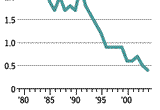Statistics Show Dramatic Decrease in U.S. Rape Cases
The number of rapes per capita has dropped by more that 85% since the 1970s, and reported rape decreased even with other violent crime on the rise, according to federal crime data. Some criminologists say these numbers might be a statistical mirage, but most are convinced that the numbers indicate a real decrease in sexual violence. Rape remains the most underreported of crimes.
The number of rapes per capita has dropped by more that 85% since the 1970s, and reported rape decreased even with other violent crime on the rise, according to federal crime data. Some criminologists say these numbers might be a statistical mirage, but most are convinced that the numbers indicate a real decrease in sexual violence. Rape remains the most underreported of crimes.
Your support matters…Washington Post:
Statistics Show Drop In U.S. Rape Cases Many Say Crime Is Still Often Unreported
By David A. Fahrenthold Washington Post Staff Writer Monday, June 19, 2006; Page A01
The number of rapes per capita in the United States has plunged by more than 85 percent since the 1970s, and reported rape fell last year even while other violent offenses increased, according to federal crime data.
This seemingly stunning reduction in sexual violence has been so consistent over the past two decades that some experts say they have started to believe it is accurate, even if they cannot fully explain why it is occurring.
In 1979, according to a Justice Department estimate based on a wide-ranging public survey, there were 2.8 rapes for every 1,000 people. In 2004, the same survey found that the rate had decreased to 0.4 per thousand.
Independent journalism is under threat and overshadowed by heavily funded mainstream media.
You can help level the playing field. Become a member.
Your tax-deductible contribution keeps us digging beneath the headlines to give you thought-provoking, investigative reporting and analysis that unearths what's really happening- without compromise.
Give today to support our courageous, independent journalists.






You need to be a supporter to comment.
There are currently no responses to this article.
Be the first to respond.